tl;dr
Instant.now() // Capture the current moment in UTC with a resolution up to nanoseconds.
Use only java.time classes. Avoid the troublesome old legacy date-time classes added before Java 8.
Using java.time
The programmer before you was making use of the new modern java.time classes that now supplant the notoriously troublesome old legacy date-time classes such as Date, Calendar, Timestamp.
Instant
The Instant class represents a moment on the timeline in UTC with a resolution of nanoseconds (up to nine (9) digits of a decimal fraction). To get the current moment in UTC is utterly simple: Instant.now.
Instant instant = Instant.now();
Converting
You should stick to the java.time classes, and avoid the legacy classes. But if absolutely necessary such as interfacing with old code not yet updated for java.time, you may convert to/from java.time. Look to new methods on old classes. The legacy class java.util.Date equivalent is Instant.
java.util.Date d = java.util.Date.from( myInstant); // To legacy from modern.
Instant instant = myJavaUtilDate.toInstant(); // To modern from legacy.
JDBC
Avoid the legacy date-time classes. Use java.time classes instead.
Your JDBC 4.2 compliant driver may be able to directly address java.time types by calling PreparedStatement::setObject and ResultSet::getObject.
myPreparedStatement.setObject( … , instant ) ;
… and …
Instant instant = myResultSet.getObject( … , Instant.class ) ;
If not, fall back to using the java.sql types, but as briefly as possible. Use new conversion methods added to the old classes.
myPreparedStatement.setTimestamp( … , java.sql.Timestamp.from( instant ) ) ;
… and …
Instant instant = myResultSet.getTimestamp( … ).toInstant() ;
No need for ZonedDateTime
Notice that we had no need for your mentioned ZonedDateTime as you said you were only interested in UTC. The Instant objects are always in UTC. That means that original code you quoted:
Date.from(ZonedDateTime.now(ZoneOffset.UTC)).toInstant();
…could have simply been shortened to:
Date.from( Instant.now() ) ;
Note that java.util.Date is always in UTC as well. However, its toString unfortunately applies the JVM’ current default time zone implicitly while generating the String. This anti-feature creates no end of confusion as you can see by searching on Stack Overflow.
If you want to see your Instant object’s UTC value through the lens of a region’s wall-clock time, assign a time zone ZoneId to get a ZoneDateTime.
Specify a proper time zone name in the format of continent/region, such as America/Montreal, Africa/Casablanca, or Pacific/Auckland. Never use the 3-4 letter abbreviation such as CDT or EST or IST as they are not true time zones, not standardized, and not even unique(!).
ZoneId z = ZoneId.of( "America/Chicago" );
ZonedDateTime zdt = instant.atZone( z );

About java.time
The java.time framework is built into Java 8 and later. These classes supplant the troublesome old legacy date-time classes such as java.util.Date, Calendar, & SimpleDateFormat.
The Joda-Time project, now in maintenance mode, advises migration to the java.time classes.
To learn more, see the Oracle Tutorial. And search Stack Overflow for many examples and explanations. Specification is JSR 310.
You may exchange java.time objects directly with your database. Use a JDBC driver compliant with JDBC 4.2 or later. No need for strings, no need for java.sql.* classes.
Where to obtain the java.time classes?
The ThreeTen-Extra project extends java.time with additional classes. This project is a proving ground for possible future additions to java.time. You may find some useful classes here such as Interval, YearWeek, YearQuarter, and more.
